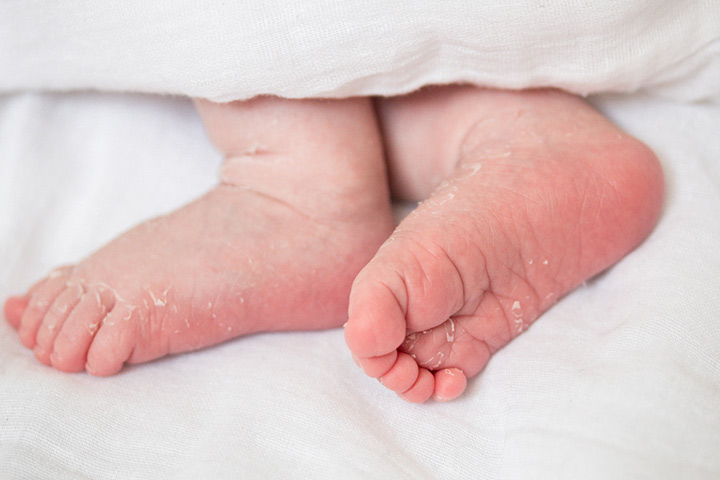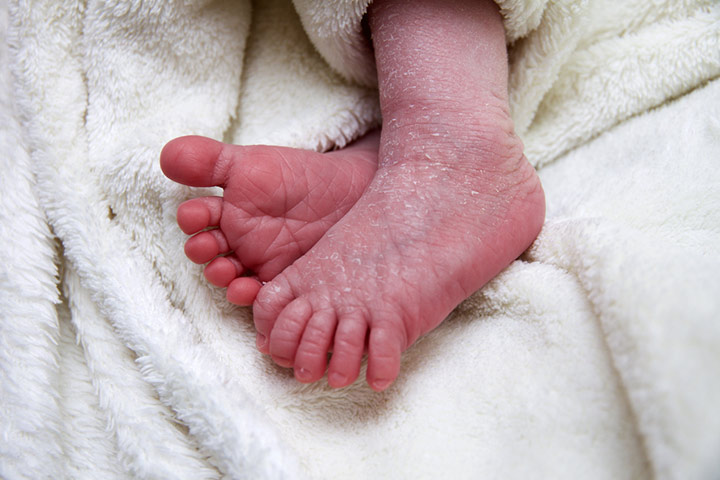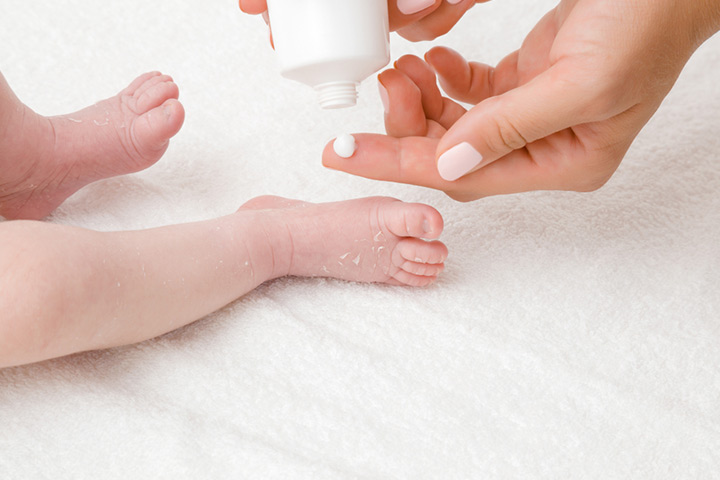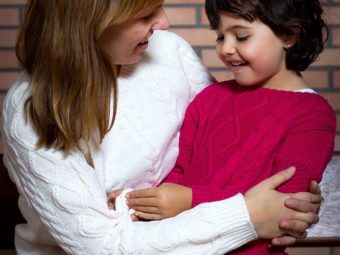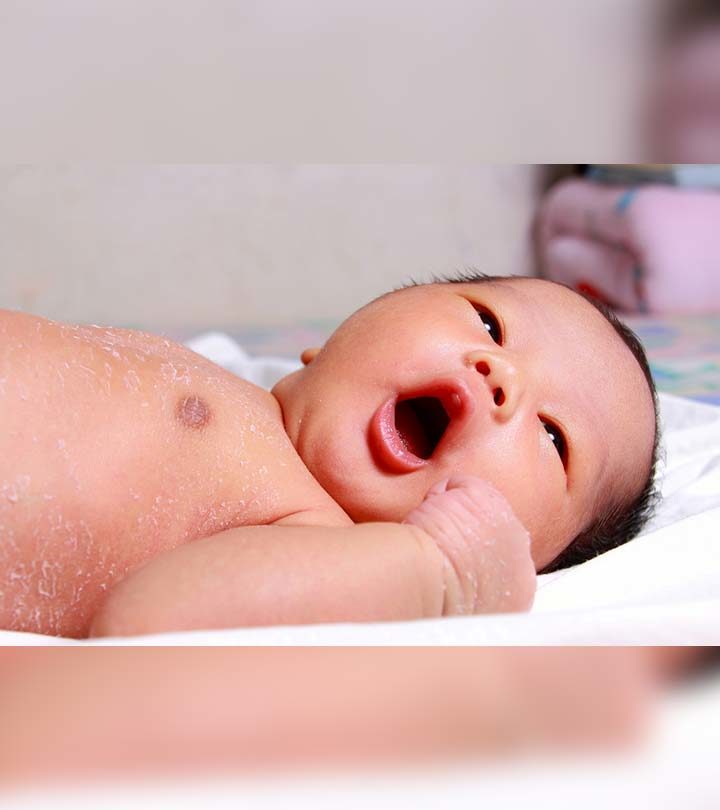
Image: Shutterstock
When a newborn arrives in your life, your whole world tends to revolve around your little one’s well-being. You’ll be looking out for the slightest thing that looks amiss or causes discomfort to your baby. But the challenge is recognizing what’s normal and what’s not for your baby. Let’s take, for instance, your newborn’s skin peeling. Any new mother would be alarmed to find her delicate little baby’s skin peeling over. However, do not worry much about it. Here we tell you what causes your baby’s skin to peel soon after birth and how you can deal with it.
Causes For Newborn Skin Peeling
Every newborn’s appearance undergoes certain changes soon after birth. One such change is peeling or flaking of their delicate skin. You might notice this change within days after giving birth or a few days after you’ve arrived home. This peeling of the skin is usually noticeable on your baby’s hands, soles, ankles, and other parts of the body as well. But it is nothing to be alarmed about. There are quite a few reasons for this.
Firstly, your baby has just come out after staying in fluids for a long time, like amniotic fluid, vernix, and blood. Now, vernix caseosa is that important thick coating that protected your baby’s skin while he/she was floating in the amniotic fluid. The more amount of vernix your baby has at the time of birth, the less will be the peeling of the skin soon after. And this depends on when your baby was born. Often, premature babies are covered in more vernix and thus end up with less peeling of skin when compared to full-term or overdue babies. Nevertheless, some amount of skin dryness and peeling is normal in newborn babies. However, it is nothing to worry too much about and usually resolves on its own (1).
How To Deal With Newborn Skin Peeling
As already mentioned, newborn skin peeling is a natural process and should resolve on its own. However, external factors like cold weather can particularly aggravate your baby’s condition. At times, certain areas like those around the ankles or knees can become extremely dry and result in cuts. But no matter how normal the condition, you’ll still worry about it. So, here are a few simple steps you can follow to take care of your baby’s skin peeling woes.
Reduced Bath Time
Do not frequently bathe your baby when the skin starts to peel. Frequent or long hours of bathing will strip your baby’s skin of the natural oils and result in dryness of the skin. Therefore, it is prudent to reduce the bath time of your baby to just 10 minutes. And avoid using harsh soaps or cleansers.
Avoid Exposure To Cold Air
Cold air is usually harsh on the skin even for adults, let alone babies. Therefore, avoid exposing your baby to cold air. Keep your baby wrapped as much as possible.
Do Not Use Hot Water
Apart from reducing extended bathing hours, also keep in mind not to use very hot water to bathe your baby. Use only lukewarm water to bathe and cleanse your baby. If the weather is too cold, you can go for sponge baths with lukewarm water.
Use A Good Moisturizer
Moisturizing your newborn’s skin helps to soothe the peeling by providing it hydration. Use a moisturizer that is specifically suitable for a newborn’s delicate skin. Apply at least 2 to 3 times a day. However, to get more benefits, apply the moisturizer soon after a warm sponge bath or during every diaper and clothes change.
Keep Your Newborn Well-Hydrated
Don’t limit your newborn’s hydration only to external means. Keep your baby well-hydrated by feeding breast milk and formula regularly. Ensure that at no point you miss the scheduled feedings to avoid your baby from getting dehydrated.
Use A Humidifier
If the air is dry and doesn’t contain moisture, it can easily cause your baby’s skin to peel. By using a humidifier, you can increase the moisture in the air.
We hope that this information has helped in lessening your worries about your newborn’s skin peeling. However, apart from the symptoms mentioned above, if you notice severe cracks or bleeding in your baby’s skin, visit the doctor immediately.

